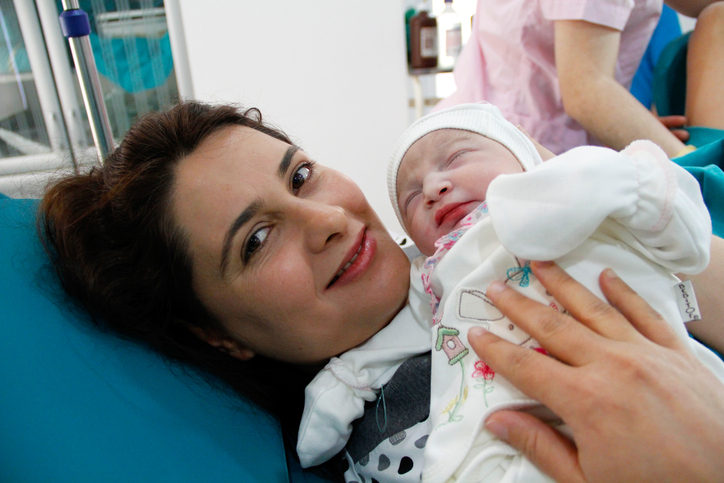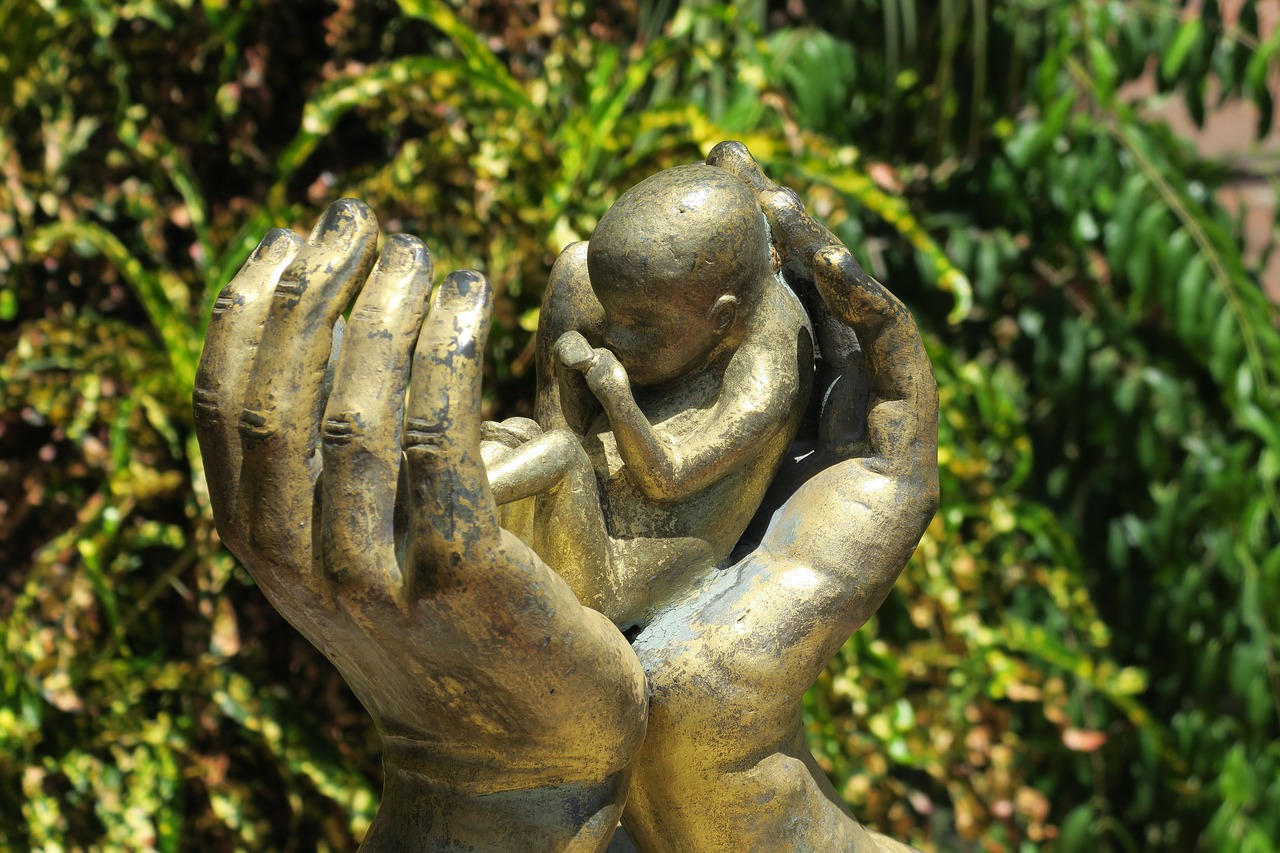
French Prime Minister Elisabeth Borne said the European Union would closely follow the respect of certain human rights and values, and cited women’s access to abortion in particular, as she responded to Italy’s election result. This is despite abortion not being mentioned in any EU law.
“In Europe, we have certain values and, obviously, we will be vigilant”, Borne told RMC Radio and BFM TV.

The Pro Life Campaign has called for reorienting Ireland’s social welfare system to promote a pro-child ethos, ensuring positive alternatives are provided to women in unplanned pregnancy, and guaranteeing that pregnant women and struggling families are prioritised in housing policy.
The recommendations were made in a Pre-Budget Submission to the Department of Finance.
PLC spokesperson Eilís Mulroy said the reforms aim at protecting vulnerable women and their babies. “There is a strong correlation between having a state policy which prioritises support for families and a decrease in the number of abortions.
“We have consistently pointed out that since 2019 there has been virtually no effort by the government to provide women in unplanned pregnancies with information about options besides abortion. The HSE My Options hotline has consistently failed to live up to this task and requires an urgent overhaul, ensuring its staff are trained and mandated to offer information about options and supports other than abortion for women seeking help for an unplanned pregnancy.
“As the hardships associated with the cost of living crisis continue to mount, it is vital that the government take serious steps to provide greater supports to the most vulnerable in Irish society. This must include pregnant women and struggling families. The proposals contained in the PLC’s Pre-Budget Submission 2023 provide several important pro-family and pro-women recommendations which have seen successful implementation elsewhere and should be considered by the Irish government.”

A Mexican University has rejected a petition to revoke the degree of a student finding that claims put forward by professors to sanction him were “unfounded”.
Graduating top of his class at the Autonomous University of Baja California’s School of Medicine and Psychology, Christian Cortez Pérez, earned the right to deliver the commencement address at his graduation ceremony on 27 June 2022. In his speech, he voiced his deeply held moral convictions regarding the state of the world today on many issues, including the importance of the family and the value of unborn life.
In response, a group of professors published a “manifesto,” calling for an effective ban on Christian’s professional practice as a psychologist. The University followed by initiating formal proceedings to: 1) withhold his professional license, 2) withdraw his merit award, and 3) alert psychology associations across Mexico about his statements.
In its ruling, issued on 21 September 2022, the University Council held that, “the arguments presented by the aggrieved party are unfounded, as well as the sanctions requested, for which reason the appeal filed is dismissed”.

Women religious in Ireland have lamented their “constant battering” by the media in a submission to the Irish synodal process.
Media reporting is “happy to use women religious as scapegoats for Irish Church and society”, the Irish women religious say in their submission.
“When we feel that it’s ending it comes back again and again like a niggling sore,” the submission reads.
The women religious add that they feel invisible and there is “a sense of being silenced”.
“But silence is seen as condoning the accusations and giving an impression that ‘we’re all guilty’,” the submission continues.
“We are partly to blame for our own invisibility as we appear to have gone underground,” the religious admit.
However, they say it is difficult for women religious to respond, as “any religious who speaks up would be shut down.”

Comments made by Irish MEP Mick Wallace about a bishop detained by the Nicaraguan regime have been dubbed “inexcusable” and “reckless” by an Irish missionary.
The European Parliament motion on Nicaragua, which decried the arrest of Bishop Rolando Álvarez and the “repression” of the Church in the country under authoritarian leader Daniel Ortega, passed by more than 500 votes.
Mr Wallace was one of the few MEPs who voted against the motion. In the debate he alleged that Bishop Álvarez – a hugely popular critic of repression by the regime – was “heavily involved” in what he claimed was a CIA-backed coup in Nicaragua in 2018 which led to “death and destruction”.
However, Jesuit missionary Fr Kevin O’Higgins SJ – who spent decades in Central America working for justice and has been working to highlight the crisis in Nicaragua – challenged Mr Wallace to produce “any kind of evidence” for the assertion, and added that he thought the intervention was “embarrassing”.

People across the United Kingdom stopped for a minute of silence today to commemorate ten million lives lost to abortion in England, Wales and Scotland since its widespread legalisation in 1967.
It is projected that the ten millionth baby had their life ended at 11:41am today.
In 2021, more than one baby was lost to abortion every two and a half minutes; 26 lives were ended every hour.
The number of abortions in England and Wales reached a record high of 214,869 last year, while 13,758 were performed in Scotland.
Opinion polls repeatedly show that the public wants increased protections for unborn babies and the number of abortions reduced, rather than the wholesale removal of legal safeguards around abortion.

Census 2021 results show that 46pc of the population are now Catholic, while 43pc are Protestant or another Christian religion. The number who say they belong to no religion is now 9.3pc.
The 2011 Census recorded 48pc of the population as being either Protestant or brought up Protestant, down five percentage points on 2001. The Catholic population stood at 45pc in the last census, which itself was up one percentage point on 2001.

Three evangelical preachers acquitted of breaching the peace after gardai accused them of using ‘homophobic’ language are now suing the Garda and the Attorney General.
The Northern Irish men claim gardaí breached their constitutional rights to freedom of religion and association, when they were arrested in Dundalk, Co Louth on September 21st, 2021.
The men were using a speaker and microphone to preach the gospel and were handing out pamphlets detailing Bible passages.
Garda Michael Brady told the court: ‘They were saying homosexuals are going to burn in hell for ever and sodomy was a sin,’ the garda told the court.
When it was put to him that the accused enjoyed freedom of speech and association, the garda replied they were not entitled to insult or belittle others.
The court saw video footage showing of one of the men saying both homosexual and heterosexual people must repent before God. One of the men told the court he quoted from the Bible and said unrighteous people will not enter Heaven.
Judge Eirinn McKiernan said everyone is entitled to their views. She said she had doubts the men’s actions were likely to cause a breach of the peace and dismissed the charges against all three men.
The men lodged papers in the High Court in Dublin on Wednesday seeking damages and declarations that their rights were infringed during the Dundalk incident.

More than 16,634 adopted people, birth parents, and other relatives have now registered with the Adoption Authority of Ireland to state their preferences about making contact with birth relatives.
Latest figures show that 2,174 people have joined the new Contact Preference Register (CPR), which was set up in July as part of the enactment of the Birth Information and Tracing Act 2022.
The CPR replaces the old National Adoption Contact Preference Register (NACPR), on which 14,460 people were registered.
The Birth Information and Tracing Act provides legal entitlement, where available, to full and unrestricted access to birth certificates, birth, early life, care, and medical information for any person who was adopted, boarded out, had their birth illegally registered, or who otherwise has questions in relation to their origins. The new law also creates a statutory tracing service for those affected by adoption who are seeking to make contact with birth relatives.

Christians in India say a new anti-conversion law passed in the state of Karnataka, will infringe on the freedom of religion guaranteed by the Indian constitution.
The legislation, known as the anti-conversion bill, was passed by the Karnataka Legislative Assembly last year, but it was not brought before the upper house Council, where the ruling BJP then lacked a majority, until this year, after the party secured 40 of the Council’s 75 seats.
The BJP party, which also holds power at the national level, is aligned with a Hindu nationalist organization, and has been passing anti-conversion bills – targeting the country’s Muslim and Christian minorities – in state legislatures it controls.
The law allows for a prison term of up to five years for an “illegal” conversion, which can extend to 10 years if it involves a minor.
Hindu nationalists have been stoking fears over “illegal conversion” for years, and claim Christian groups use their social services – church organisations are overrepresented compared to their percentage of the population in the educational, health, and charitable sectors in India – to illicitly convert Hindus, especially those belonging to the marginalised lower castes.